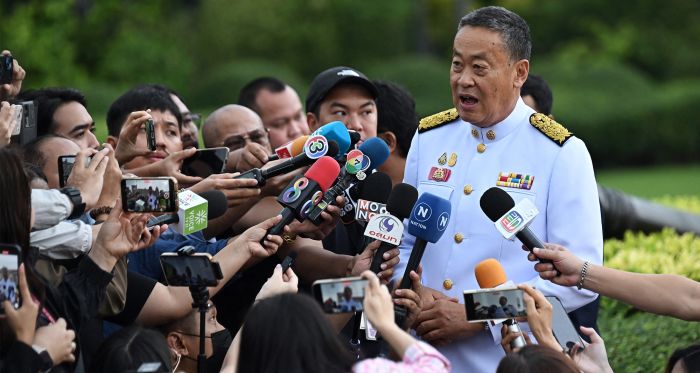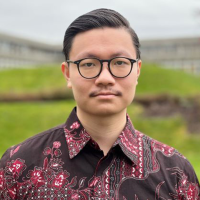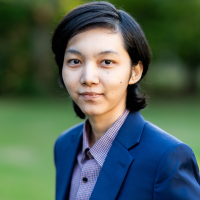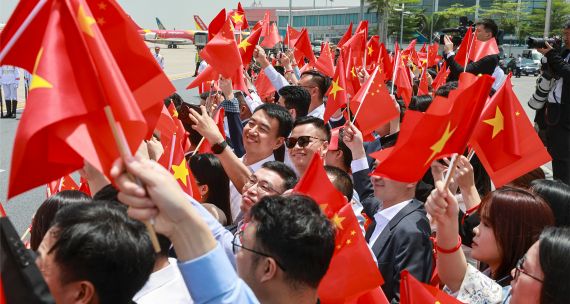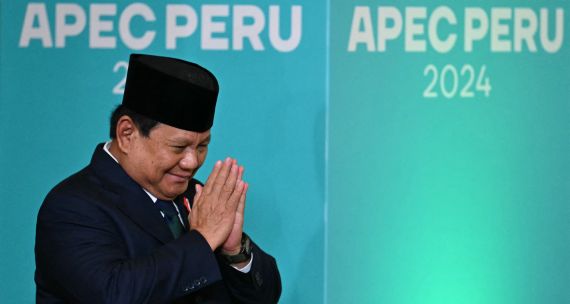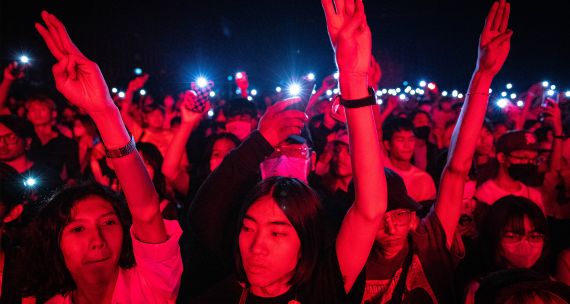The Takeaway
The fragile truce holding together Thailand’s government appears to be cracking. In May, the country’s Constitutional Court accepted a petition by a group of caretaker senators to remove Prime Minister Srettha Thavisin from office, and his ally, former prime minister Thaksin Shinawatra, was slapped with charges of violating the country’s lèse-majesté (‘royal insult’) laws. While Srettha’s approval among the Thai public is dismally low, the spectre of his removal after a tumultuous 2023 election is exacerbating concerns about renewed political instability and Thailand’s already shaky post-COVID-19 economic recovery.
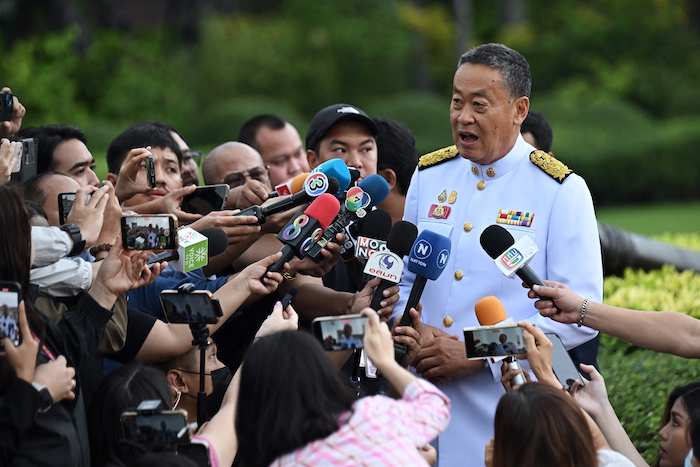
In Brief
- On May 23, 40 senators from the military-appointed upper house alleged that Srettha’s nomination of Pichit Chuenban to a cabinet position violated the country’s constitution, which forbids the appointment of ministers who fail to meet moral and ethical standards. In 2008, Pichit was sentenced to six months in prison for trying to bribe a judge presiding over a corruption case against Thaksin.
- Thaksin was deposed in a military coup in 2006, fled the country in 2008, then returned to Thailand in August 2023. Upon returning, he was ordered to serve an eight-year prison sentence — later commuted to one year He was granted parole in February 2024, ostensibly for health reasons.
- Many believe that Thaksin, while “retired” from politics, remains the de facto head of the ruling Pheu Thai Party. On May 29, he was charged with insulting the country’s monarchy in a 2015 interview.
- Thailand is Canada’s second-largest trading partner in Southeast Asia. In 2022, bilateral merchandise trade reached C$6.4 billion, and Canadian direct investment in Thailand totalled C$319 million.
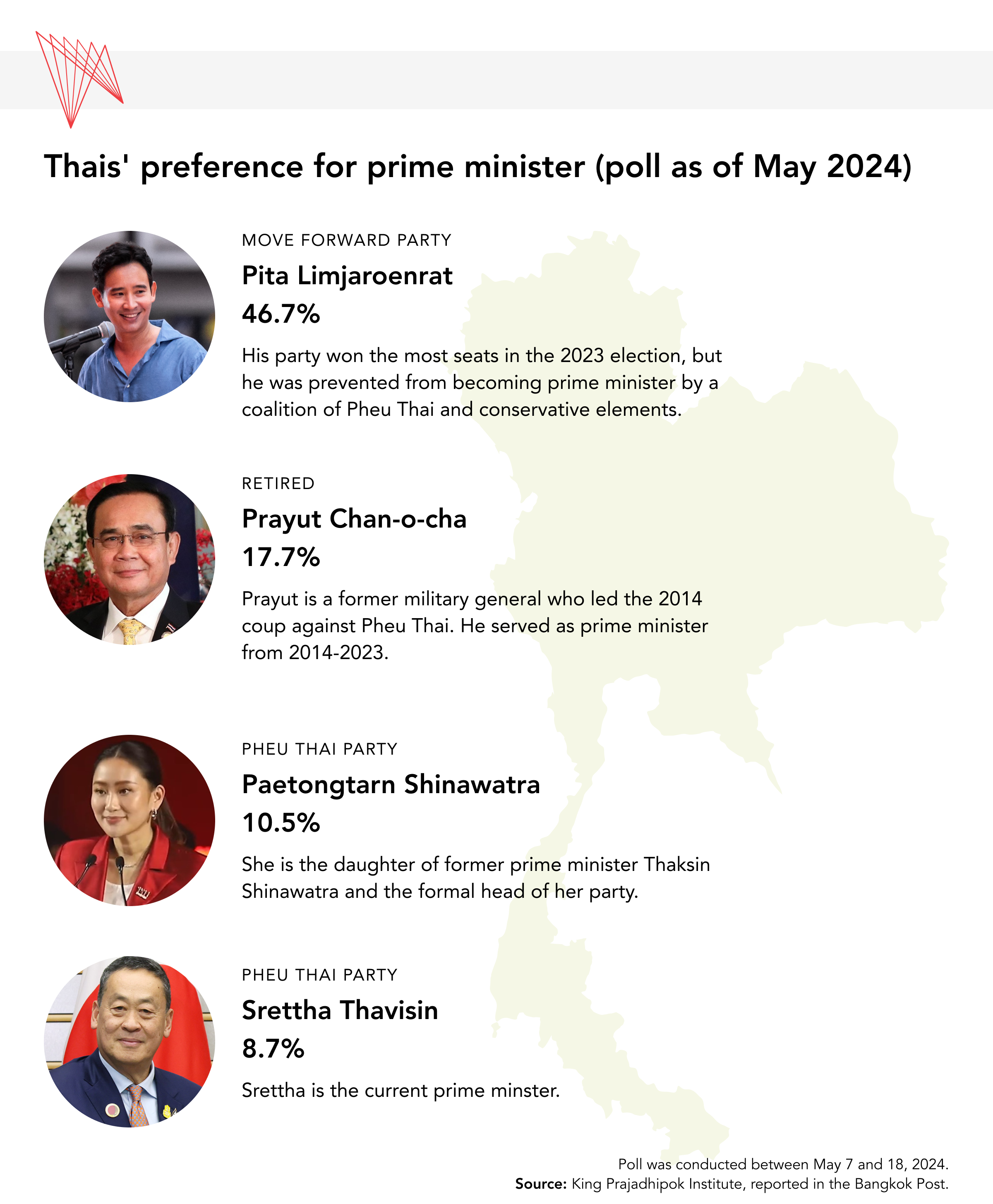
Implications
The legal proceedings against Srettha and Thaksin are viewed by observers as attempts by the conservative establishment to ‘discipline’ the Pheu Thai leadership. That establishment is closely aligned with country’s powerful military, and has long had a hostile relationship with Pheu Thai. However, in September 2023, the two sides joined forces in a governing coalition to halt the momentum of the reformist Move Forward Party (MFP). MFP won the most seats in the 2023 election — 151 compared to Pheu Thai’s 141- but the MFP’s leader, Pita Limjaroenrat, was prevented from becoming prime minister, in part due to the ‘no’ votes of Thailand’s 250 unelected, military-aligned senators.
The Pheu Thai-conservative ‘unholy alliance’ allowed Thaksin to return from exile, but reportedly only if he agreed to retire from politics. Thaksin seems to be thumbing his nose at that agreement: he has made an official appearance at the Pheu Thai headquarters, travelled to his former constituency of Chiang Mai, and spoken with Myanmar’s government-in-exile and ethnic armed organizations near the Thai-Myanmar border. He also met with Malaysian Prime Minister Anwar Ibrahim and reportedly discussed the situation in Myanmar, which, if true, would violate Thaksin’s parole conditions.
The political prominence of the Thai military looms large. If the Constitutional Court convicts Srettha, it’s not clear who could replace him. A recent public opinion poll showed that among a list of potential candidates for prime minister, Srettha trailed well behind the MFP’s Pita (see Figure 1). In 2020-21, supporters of the MFP’s predecessor party staged mass protests across the country after the military-aligned government forced the party’s dissolution over what many saw as spurious charges. There is a long history of the military using political unrest as a pretext for intervening in the country’s politics: since 1932, Thailand has endured 13 military coups.
Srettha’s possible removal injects uncertainty into a struggling economy. Recent cabinet shuffles and the legal proceedings against the Pheu Thai leadership are worrying some investors, as political turbulence could impact their investments and business operations across the country. Srettha has emphasized populist measures to boost domestic consumption and support small businesses, but the viability of these policies remains questionable given the country’s fiscal constraints.
What’s next
1. Public frustration over upcoming senate elections
Ongoing Thai senate elections, taking place between June 9-26, are adding to public malaise. The new senators will not be elected through a popular vote, but by the candidates themselves. The stringent eligibility requirements and byzantine electoral process have garnered negative public reactions.
2. Myanmar policy uncertain
The sudden resignation of foreign minister Parnpree Bahiddha-nukara in April (related to the cabinet shakeup) has halted Thailand's proactive approach to the Myanmar crisis. Parnpree’s successor, Maris Sangiampongsa (a former ambassador to Canada), has said the policy will not change, but he is an associate of Thaksin, and his appointment as foreign minister bolsters Thaksin’s efforts to insert himself as a mediator in the crisis. Maris’s connection to Thaksin could undermine Bangkok’s credibility with important stakeholder groups.
3. Competing priorities put Ottawa in difficult position
In its 2022 Indo-Pacific Strategy, Canada committed to supporting democracy, the rule of law, and human rights in the region, not least of all Southeast Asia. However, even if there are clear indications of democratic backsliding in Thailand, Ottawa is unlikely to criticize its domestic affairs, especially after announcing in November 2023 that negotiations were underway for the Canada-Thailand Free Trade Agreement (FTA).
But refraining from such criticism while pursuing economic objectives could undermine Canada’s efforts to take a principled stance on such issues elsewhere in the Indo-Pacific. It may be that Bangkok’s conclusion of an FTA with the European Union — on track for completion in 2025 — will help to nudge the country back on the path of democracy and respecting human rights.
• Edited by: Erin Williams, Senior Program Manager, Asia Competencies and Ted Fraser, Senior Editor. Graphic Design: Chloe Fenemore, Senior Graphic Designer.
